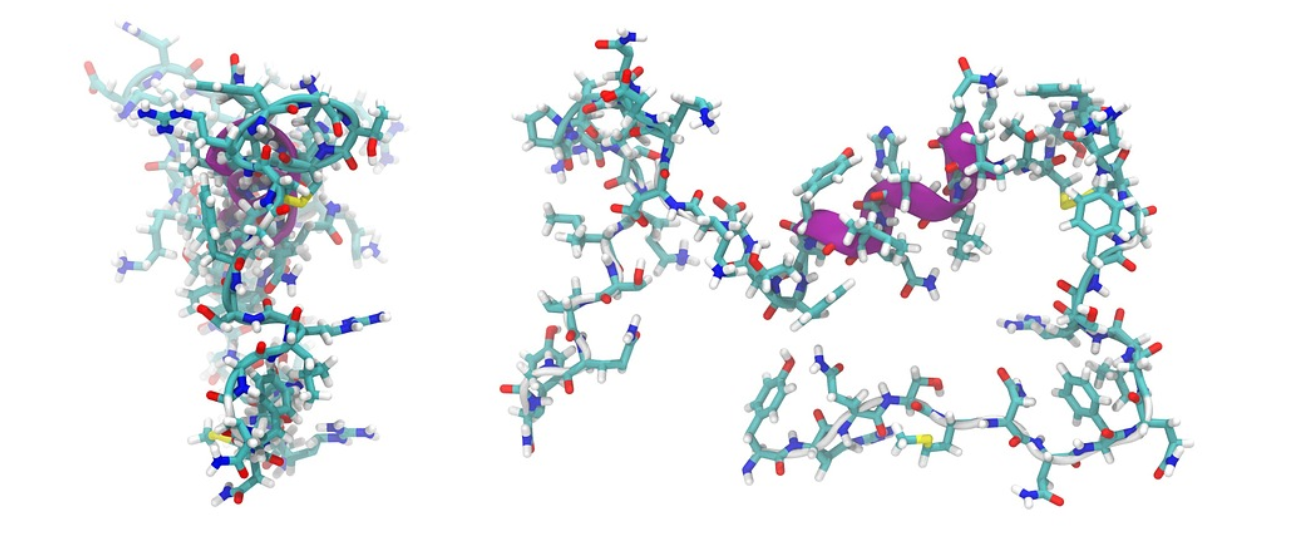Peptide Synthesis:
It is a well-known fact that proteins have a role in physiological functions. Scientists can track these activities to the amino acid sequences present in peptides of the parent protein. Thus, began the commercial production of peptides. Initially, they were obtained from plant and animal products such as milk, egg, flaxseeds, hemp seeds, hemp, oats, and soy proteins. Now there are many peptide synthesis companies, and they build customized peptides from the constituent amino acids. There are different methods like enzyme hydrolysis, fermentation, and in-silico synthetic process.
Peptides- Uses and Challenges:
Peptides are a component in skin-care products, hair loss therapies, anti-aging creams, and sexual treatments. They carry essential minerals to the skin surface and delay the breakdown of natural collagen. They aid in the production of collagen and elastin, which prevent wrinkling. There are specific regenerative peptides for hair growth. Certain peptides can cause the release of dopamine which is essential for sexual arousal.
Sportspersons use them for faster healing of injuries. Peptides also function as muscle-building agents. Unlike steroids, peptides boost the level of hormones required for bodybuilding and are relatively harmless. The best attribute of these molecules is they do not accumulate in the body and have recycling properties. But most of the available peptides are either in the form of injections or as topical creams. Oral use of peptides has challenges such as bitter taste, enzymatic reactions in the stomach, and prevention of absorption by the intestinal walls.
Peptides as Drugs:
The first use of peptides for therapeutic conditions came in the form of insulin to control sugar levels. Another early example is the ACTH (adrenocorticotropic hormone) for the treatment of endocrine disorders.
Then began the synthetic manufacturing of peptides like oxytocin and vasopressin. Research is going on the subject of peptide-based diet. Peptide-rich food items like soybean are known to make you feel fuller. Also, there are possibilities of using the di and tripeptides from collagen as a medical food for quicker wound healing. Peptides are already a constituent of many beauty drinks. Their role as ligands for hormone receptors makes them suitable for drug discovery. Thus peptides have an essential role in curing ailments of the modern world, such as heart disease, hypertension, and obesity.
Peptides in Cancer Treatment:
Peptides are very effective for targeted drug delivery. Can bind to the tumor cells, regulate their propagation and act as a drug delivery system. For enhancing drug effectiveness, peptides are used in combination with nanomaterials. Peptide-alone therapies improve the immune system’s response to fight cancer cells. Scientists are looking for ways to utilize peptides for the early detection of cancer. The advantage of the peptide-based treatment is they cause negligible side effects. Their small dimensions and low molecular weight makes them highly biocompatible. Peptide-based treatments are efficient for different cancers, such as lung, pancreas, prostate, breasts, and gastric cancers.
Antimicrobial Action of Peptides:
Antibiotic resistance is an inevitable crisis in the field of medicine today. A class of peptides called antimicrobial peptides (AMP) can prevent multidrug-resistant infections. Antibiotics interfere with microbial activity, whereas the cationic and hydrophobic peptides interact with bacterial and eukaryotic membranes. They can penetrate the membranes and kill the microbe. These are effective against various pathogens like viruses and fungi. Thus peptide-based vaccine development is a crucial area of research in the field of medical science. The issue with peptides is their immunomodulatory properties and multifunctionality. Currently, protein-based vaccines for the novel coronavirus are in the trial phase.
Final Thoughts:
Initially, peptides were life-saving drugs for lifestyle diseases like diabetes and hypertension. Slowly they penetrated the cosmetic industry as they could slow down the aging process, prevent hair loss, and strengthen your muscles. Oral consumption options, isolation from food items, and specifying their roles are some of the considerations explored by the pharmaceutical industry. Today, the scientific community is looking into their role in enhancing the immune response of the body. In an increasingly drug-resistant microbial world, peptide-based vaccines can become a boon to humanity. Also, their relatively harmless nature is one of the reasons for the increased interest in peptides.
